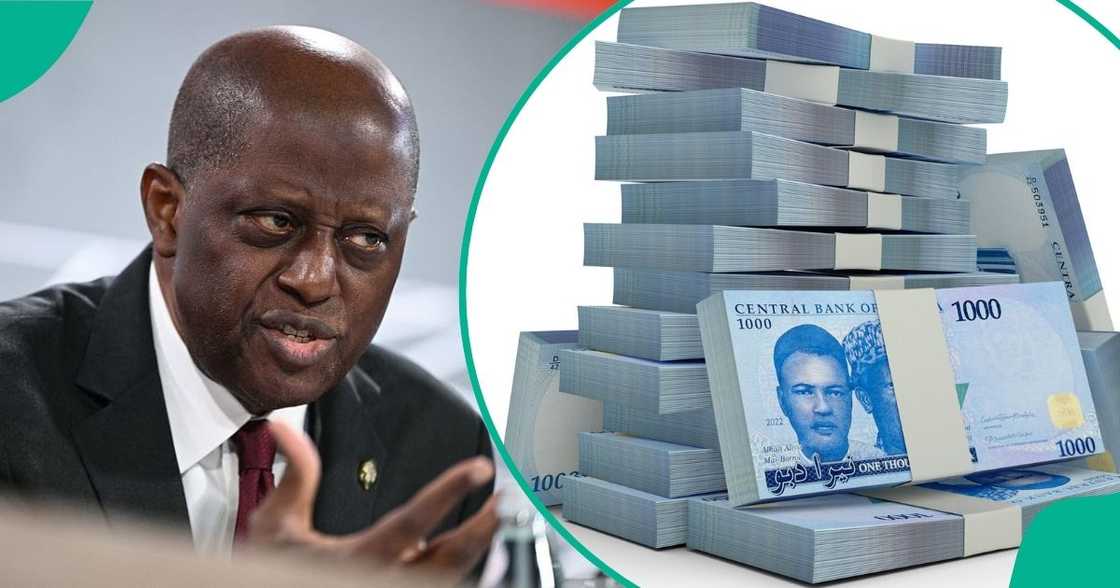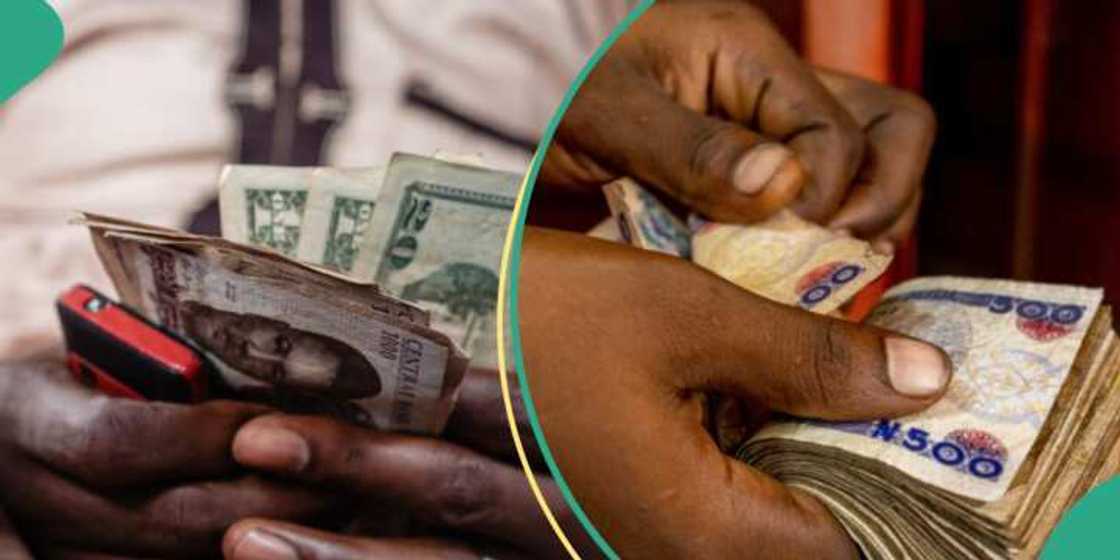Make the Naira Portable Again: Experts Urge CBN to Introduce N10,000 and N20,000 Notes
- A new report has asked the Central Bank of Nigeria (CBN) to introduce higher naira denomination to enable portability
- Quartus Economics disclosed in a recent report that current naira depreciation has made the naira too heavy to carry
- The report asked the apex bank to introduce N10,000 and N20,000 notes to reduce heavy cash transactions
Pascal Oparada is a journalist with Legit.ng, covering technology, energy, stocks, investment, and the economy for over a decade.
A new economic report by Quartus Economics has called on the Central Bank of Nigeria (CBN) to introduce higher-value naira notes, N10,000 and N20,000 denominations, to restore the currency’s practicality and reduce the soaring cost of cash transactions across the country.
In its latest study titled “Is Africa’s Eagle Stuck or Soaring Back to Life?”, the firm said the continued depreciation of the naira had rendered the N1,000 note practically obsolete in real terms.

Source: Getty Images
‘N1,000 note now worth less than 60 cents’
When the N1,000 note was introduced in 2005, it was worth about $7 at the official exchange rate. Today, it is valued at less than 60 US cents, a dramatic indicator of the naira’s sharp decline.
Quartus Economics noted that this loss of value has made everyday transactions increasingly burdensome, especially in the informal economy where most Nigerians still rely on cash.

Read also
UK removes tariffs on 3,000 Nigerian products as Nigeria enforces reciprocal ban on US imports
“Traders, artisans, and rural consumers now carry large volumes of cash for transactions that could easily be handled with a few higher-value notes,” the report said.
Currency portability and inflation myths
The report dismissed fears that introducing higher-value notes could worsen inflation, calling such concerns “a myth unsupported by evidence.”
“Inflation is cost-push or demand-pull. Neither is related to currency denomination,” it stated. “Countries introduce higher-value notes to maintain portability after a period of significant currency depreciation, not to trigger inflation.”
Quartus Economics explained that the introduction of N10,000 and N20,000 notes would not flood the economy with more money but would make cash transactions more efficient and reduce printing and logistics costs for the CBN.
Cost of printing low-value notes now unsustainable
According to the report, the cost of printing, transporting, and securing low-value notes has become “prohibitive” for the central bank.
It also warned that the weight of carrying large sums in cash has become a drag on economic activity, particularly outside major urban centres.

Read also
Massive rush: Investors pour dollars into Nigeria as naira defies odds, Hits N1,452 per dollar
“Outside the formal sector and the urban elite, the naira’s heavy weight is slowing down growth,” it noted.
94% decline in real value
According to a report by Punch, Quartus Economics estimated that the naira’s real value has fallen by 94 per cent over the last two decades. For context, a N5,000 note proposed in 2012 would now be equivalent to a N50,000 note in purchasing power.
The firm based its calculation on the rising cost of essential goods and services. For example, a kilogram of imported rice that cost about N150 in 2005 now sells for N2,500, while a domestic flight from Lagos to Abuja has risen from N12,000 to over N150,000.
‘Not printing more money, but modernising the naira’
Quartus Economics stressed that its proposal was not about printing more money, but about modernising Nigeria’s currency structure to reflect current economic realities.

Source: Getty Images
It recalled that the CBN had once planned to introduce a N5,000 note in 2012 under then-Governor Sanusi Lamido Sanusi, but the idea was shelved after public opposition.
“More than a decade later,” the report said, “the logic remains even stronger. The naira’s value has collapsed, and it’s time to make it portable again.”
Naira strengthens to N1,457 as CBN boosts dollar supply
Legit.ng earlier reported that the Nigerian currency has continued its upward climb against the US dollar, appreciating for seven consecutive days following the rise of Nigeria’s external reserves.
According to data from the Nigerian foreign exchange market, the local currency rose N1,457.79 on Friday, October 24, 2025, up from N1,460 per dollar the previous day.
Currency dealers reported ample supply of the US greenback, leading to the naira’s appreciation
Source: Legit.ng




